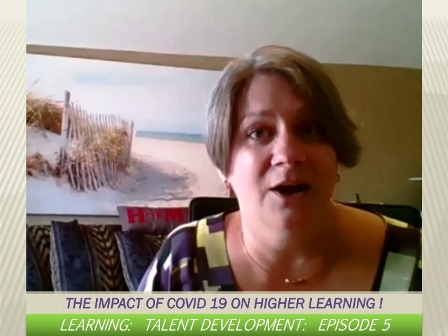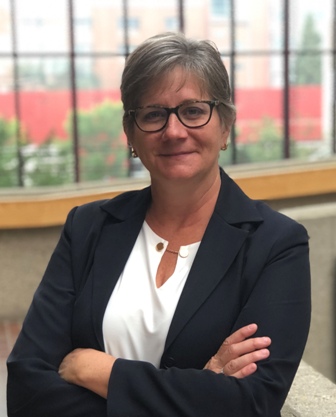
In Episode 5, Cori shares on the merits of remote learning from the orientation of students returning to the fall session. To enable interaction, some professors took the unique steps to apply interactively technologies to engage students during classes. After all, if the future will be one of hybrid remote work environments, then higher learning will need to transition to a hybrid learning environment as well!
Stay tuned for Episode 6 with Cori on Employer engagement!
Cori’s Blog
What does the future of education look like? That is the million dollar question in Alberta and the world right now. COVID has increased the speed of change in this industry in the last six months and who knows what it will look like moving forward but there are some hints. Disclaimer, all of these ideas are my own so bear with me as I walk you though my thinking. In the past, post-secondaries were the holder of knowledge that had been vetted and tested by recognized experts in their fields. Professors were the keepers of knowledge which was passed down in lecture style format for eager student’s assimilation. Students spent hours reviewing periodicals (articles) and reading literature that could only be accessed through the libraries at higher learning institutes. Students were evaluated by the professors on how well they were able to retain knowledge and the University awarded student’s acquisition knowledge by conferring a degree.
Fast forward to the advent of google and its super powered search engine. Knowledge has become easy to acquire and anyone who can conduct a google search can find articles that support whatever they wish to espouse. We can become our own expert in whatever subject, or so we think. However, are we an expert if we have not had someone critique our thinking, introduce a different point of view or practiced application of the theory until we are competent? That is where I think the role of post-secondaries are critical in education and knowledge building. Teaching in the future will encourage deep critical thinking. I predict that it will not be enough for students to just repeat a formula and plug in the numbers for the right answer. Students will need to reflect on the context of the question and be able to apply the theory learned to the situation. Students will gather content on the topic of the week before class by themselves and then the in-class portion will be actual application and “work”shops while the professor evaluates their work. The future will be more labs and less lectures. Students will have the opportunity to build competencies through repeated attempts on mastering materials rather than one time exams. And yes, there will be remote and in-person learning options.
About Cori Foged BA

Cori is the Director of Career Education and Coaching Alberta School of Business, University of Alberta.
She brings 20 years of experience working in the career development field specifically in higher educational settings with a focus on work integrated learning (WIL) and skilled in strategy, career management, student development, employer engagement, and operations management.
She has ideas – lots of them. Generating ideas is as natural as breathing to her and rarely is she at a loss on what to do next which makes strategy a fun game to play. Cori also likes to implement – whether it is a mentorship program, a wellness initiative or development of leading edge career content, there is always something on her list of things to do, articles to read or actions to take. She is a political and economic junkie. Last but not least, to Cori, people are the best – to her people make it all worthwhile.




